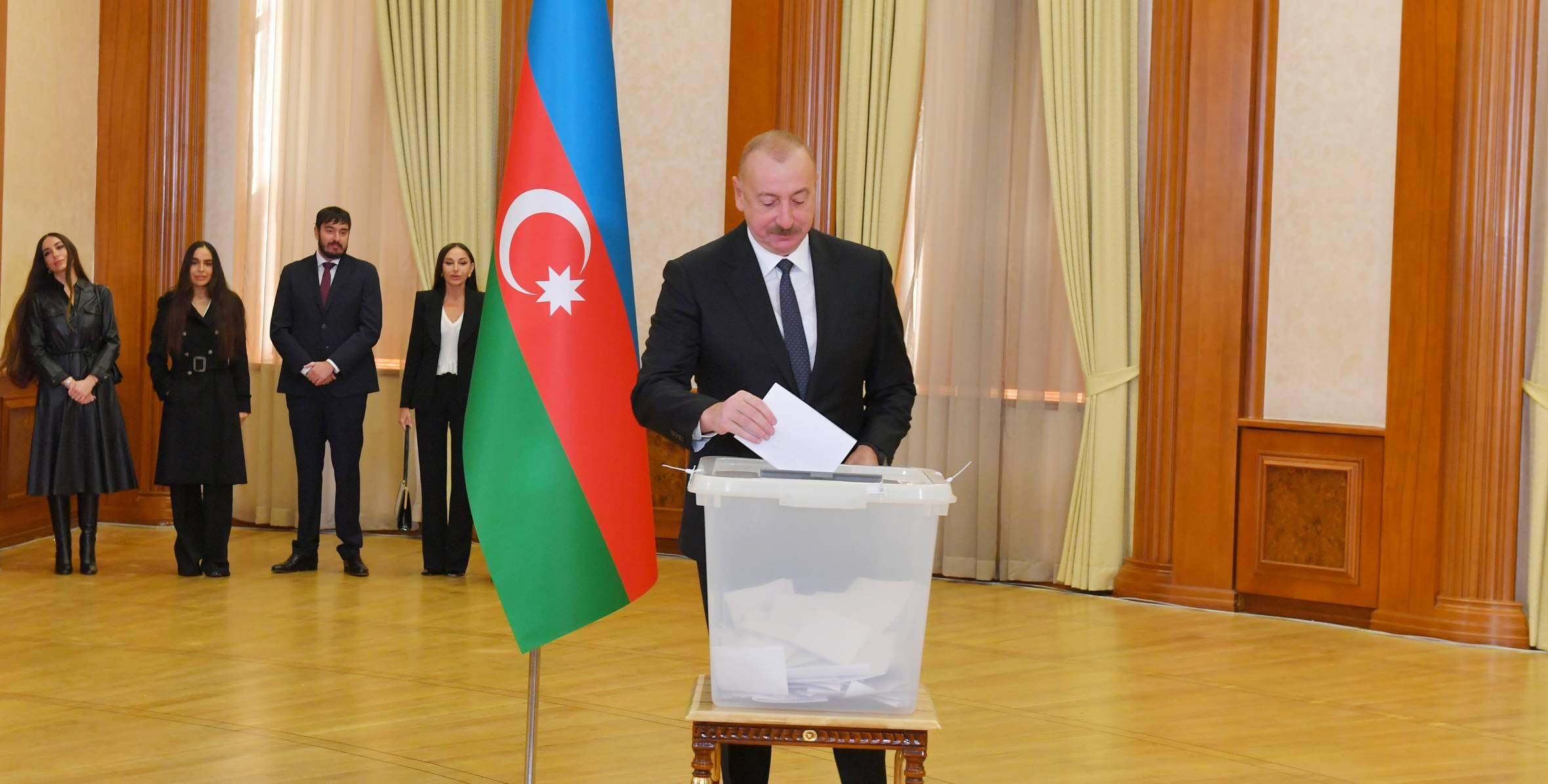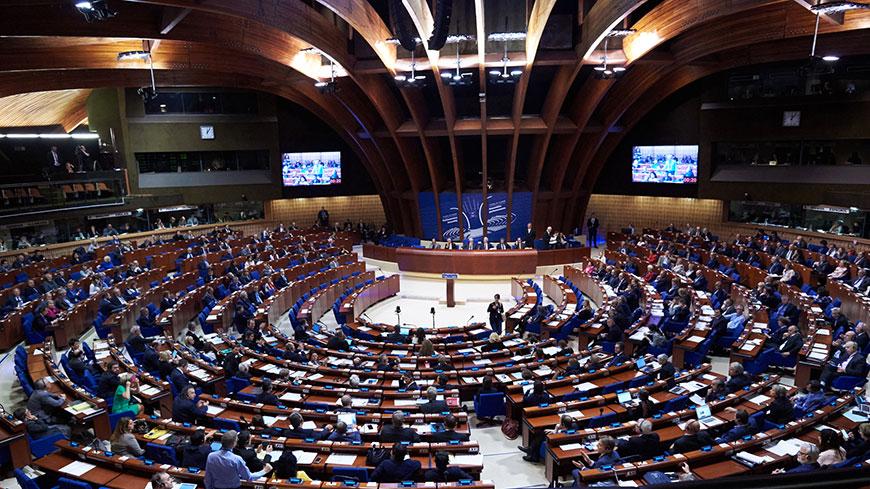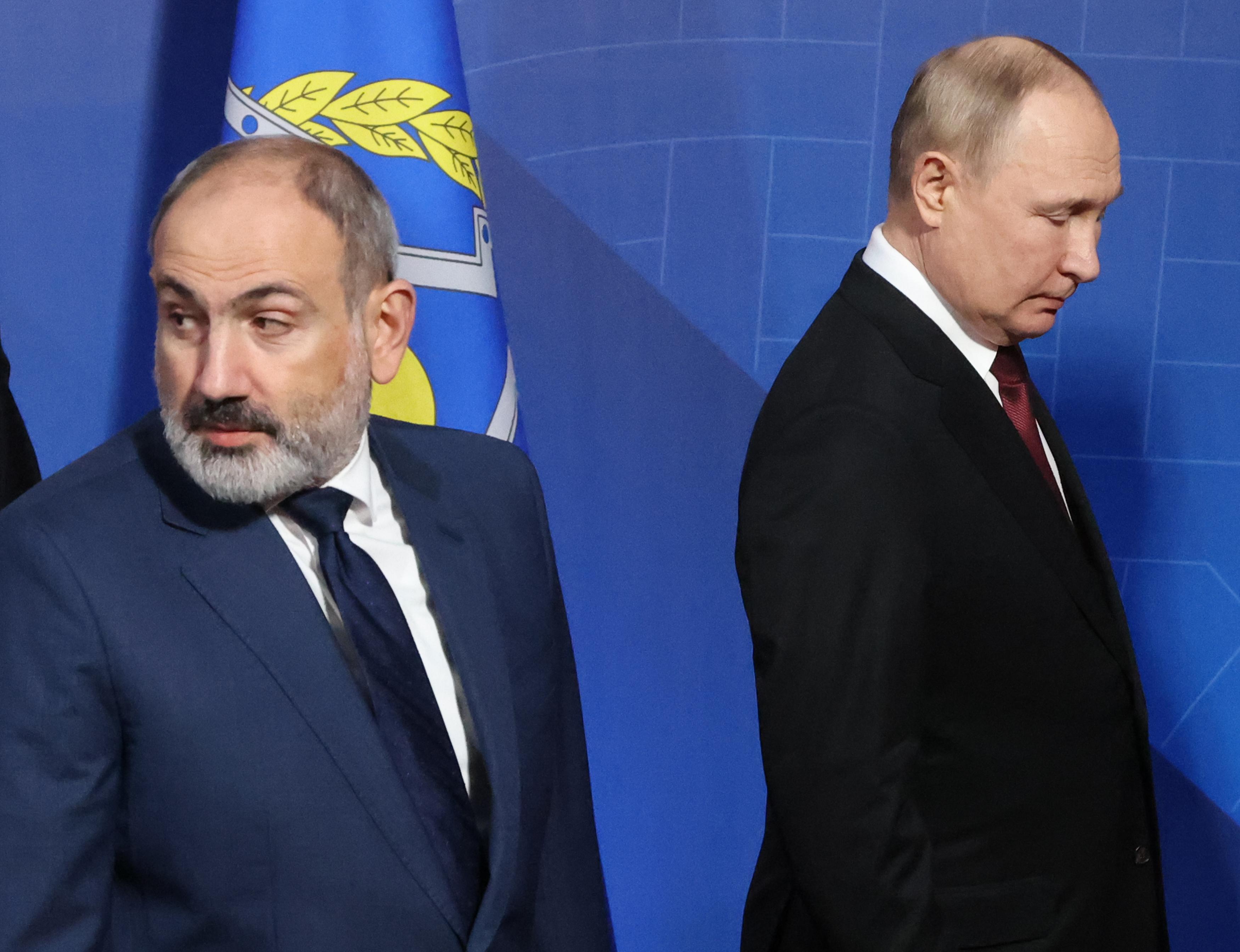Revitalizing Azerbaijan's domestic strength & global influence Aliyev's landslide victory
Azerbaijan has crowned the November 2020 Karabakh victory with the February 2024 presidential elections, re-delegating the incumbent president with a fresh 7-year-long mandate to rule the nation with restored territorial integrity for the first time since the fall of the USSR.
Cruciality of restoring territorial integrity & gigantic tasks ahead
The Karabakh victory has played a significant role in the February 2024 presidential elections and this mandate comes with the promise of restored territorial integrity, which is a significant achievement for Azerbaijan since the fall of the USSR.
The resounding victory of President Ilham Aliyev in Azerbaijan's snap presidential election, securing 92.12 percent of the votes, heralds a pivotal moment for the nation's far-reaching ambitions. As Azerbaijan navigates complex regional dynamics, including its relationship with Armenia and pressures from Europe, Ilham Aliyev's leadership will significantly shape the country's future and shield it from overt and covert threats and plots.

Looking ahead to 2024, several key factors will shape Azerbaijan's trajectory and influence the broader region. Regional stability is and will remain pivotal for the stability of Azerbaijan and the entire Caucasus region. President Aliyev's administration is to continue to prioritize efforts to maintain internal stability while navigating regional dynamics, particularly regarding its relationship with Armenia.
Azerbaijan's economy, heavily reliant on oil and gas exports, is to undergo diversification efforts to reduce dependency on hydrocarbons. The government's focus on infrastructure development, technology investment, and diversifying the economy will also be vital for sustainable growth.
President Ilham Aliyev's new cabinet is to engage in diplomatic efforts to strengthen ties with key regional and global players, including Russia, Türkiye, and European nations, and balancing these relationships will be crucial for the nation’s geopolitical positioning and economic interests.
Azerbaijan continues to play a significant role in global energy markets as a key supplier of oil and gas. The government is to pursue strategies to maximize energy revenues while adapting to shifts in global energy dynamics, including renewable energy initiatives and diversification of energy export routes.
The government is and will remain vigilant regarding security threats, including potential spillovers from conflicts in neighboring countries, and addressing internal security challenges. Cooperation with regional partners and international organizations will be essential in addressing security concerns effectively.
Pressure from European nations and international organizations for democratic reforms and human rights improvements will persist. President Aliyev's administration will need to balance these demands with domestic priorities while upholding Azerbaijan's sovereignty and stability.

Azerbaijan should also focus on promoting cultural heritage, education, and social development initiatives to foster national identity and social cohesion. Efforts to address socioeconomic disparities and promote inclusivity will contribute to overall stability and progress.
The year 2024 holds both opportunities and challenges for Azerbaijan and the broader region. President Aliyev's leadership will be pivotal in navigating these complexities, fostering stability, advancing economic development, and strengthening diplomatic relations to ensure a prosperous future for Azerbaijan and its neighbors.
With tensions persisting between Azerbaijan and Armenia, particularly over issues related to Karabakh, Aliyev's victory underscores a renewed mandate for diplomatic engagement. While the possibility of signing a peace agreement remains on the horizon, Aliyev's steadfast approach to negotiations will be instrumental in fostering stability and reconciling historical grievances.
Much-needed reforms
Since the 2020 win in Karabakh, the government focused on healing and cementing unity in Azerbaijan, ensuring the success of a significant victory. Moving forward into a new phase starting in 2024, the February 7, 2024, elections mark the transition between phases. The people and the state of Azerbaijan need to be aware of potential challenges and remain focused on the path and goals ahead.
To ensure the competitiveness and resilience of the Azerbaijani state in the face of geopolitical changes, it is crucial to implement systematic reforms. These reforms should go beyond mere personnel changes. While personnel reforms are important, it is essential to recognize that a planned economy solely controlled by the state, without competition, can lead to the collapse of the state in the long run.
Therefore, reforms should encompass a broader scope, including economic policies that promote competition and adaptability. By embracing these reforms, the government can meet the expectations of society and navigate the challenges ahead successfully.
The need for radical reforms in the governance system at all levels of power, surpassing structural and personnel changes is vital. While personnel and structural reforms can play a role in this process, it is important to consider broader reforms. During the recent election process, interesting ideas and proposals were put forward, and they need to be carefully analyzed and taken into consideration.
Predicting possible future changes
Starting in April, significant processes are expected to unfold in the region, including the South Caucasus, Central Asia, and the CIS region. There is a possibility of taking important steps towards the institutionalization and organization of the Organization of Turkic States, potentially becoming a single platform for economic and political integration.
The realization of the 3+3 or 3+2 format is also a possibility. From May to December, there may be progress in the development of bilateral and multilateral relations in the region, with initial signs of regional security mechanisms emerging. Additionally, there is mention of the prospect of signing a peace treaty with Armenia. Overall, it is anticipated that 2024 will be a year of significant changes and innovations.
It is important to protect national interests, which may not align with the interests of those attempting to influence the South Caucasus region. Based on this context, there is a possibility of significant developments occurring towards the end of this year and the beginning of next year.
In a similar vein, the Pashinyan government is facing pressure from Russia and Azerbaijan and has to greenlight the opening of the Zangazur Corridor. The Kremlin's pressure on Armenia and Iran is vital to bring about the realization of this project. Nikol Pashinyan’s intention to move Armenia closer to the EU will not lead to dramatic changes in his home and entire region and its openness and prosperity will depend on regional cooperation.
The EU may see Armenia primarily as a geopolitical tool and may not provide extensive support in the regional peace process. Consequently, direct bilateral contacts with Azerbaijan may be seen as an alternative option for official Yerevan. Reports leaked indicate that Nikol Pashinyan has emphasized the importance of bilateral contacts with Azerbaijan at a closed meeting of his government. He advocated direct communication mechanisms with Azerbaijan.
Axiomatic that the peace process will primarily involve direct discussions between Azerbaijan and Armenia. Official Baku is not willing to give another chance to the biased and one-sided mediation mission of the EU, except for the mediation mission of European Council President Charles Michel. On the other hand, official Yerevan does not want to involve Russia in the mediation mission though Azerbaijan has a more tolerant approach towards it compared to the EU.
Armenia & Russia at loggerheads
Tensions run high between Russia and Armenia over the latter's efforts to establish closer relations with the West. The Kremlin is irritated by Armenia's behavior and has been expressing its anger through statements made by Russian officials and pro-Kremlin experts. Moscow has been attacking the political and public positions of the Armenian government, accusing them of spreading propaganda and making fabricated claims.
Russian Foreign Ministry Spokesperson Maria Zakharova in response to an Armenian journalist's question about the destruction of WWII monuments in the Karabakh region of Azerbaijan asked for evidence to support the journalist's claims and stated that a position on the matter can only be announced after reviewing the facts. This response has caused dissatisfaction among the Armenian society, as it is seen as an indirect suggestion that the journalist's claims are false.

The presence of Russian peacekeepers in the Karabakh region of Azerbaijan stated that the latter had not destroyed any monuments, and if such destruction had occurred, it would have been recorded and reported to the Russian leadership. Additionally, it is mentioned that the Kremlin has accurate information that Armenians destroyed WWII monuments during the occupation and made changes to turn them into monuments of Armenian terrorists.
Similarly, Russian Deputy Foreign Minister Mikhail Galuzin said that Karabakh Armenians left the region voluntarily, without any violence or pressure. This statement is said to refute the claims of genocide and ethnic cleansing made by Armenians. It is suggested that Russia is the only country with accurate information about the situation in the Karabakh region due to the presence of Russian peacekeeping forces.
Additionally, the Kremlin backs the opening of transport and communication routes between Azerbaijan, Armenia, and Russia and it also includes the Zangazur Corridor to connect mainland Azerbaijan with Nakhchivan.
Conclusion
Azerbaijan's strategic importance, coupled with its energy resources, places it at the center of European geopolitical interests. President Aliyev is facing the challenge of balancing these interests with domestic priorities while upholding Azerbaijan's sovereignty. As European pressure mounts on issues such as human rights and democratic reforms, the government of Aliyev should navigate these complexities with pragmatism and strategic foresight.
Ilham Aliyev's landslide victory provides a mandate for continuity in Azerbaijan's foreign policy and domestic governance and his leadership will be pivotal in steering the nation through regional challenges while advancing its interests on the global stage. As Azerbaijan embraces its role as a key player in the Caucasus region, Aliyev's presidency holds significant implications for regional stability and diplomatic relations.
In a nutshell, President Ilham Aliyev's overwhelming electoral triumph signals a crucial juncture for Azerbaijan, shaping its approach to regional dynamics and international relations. With a mandate for leadership reaffirmed, Aliyev's tenure will be defined by his ability to navigate geopolitical complexities while advancing Azerbaijan's interests on multiple fronts.








